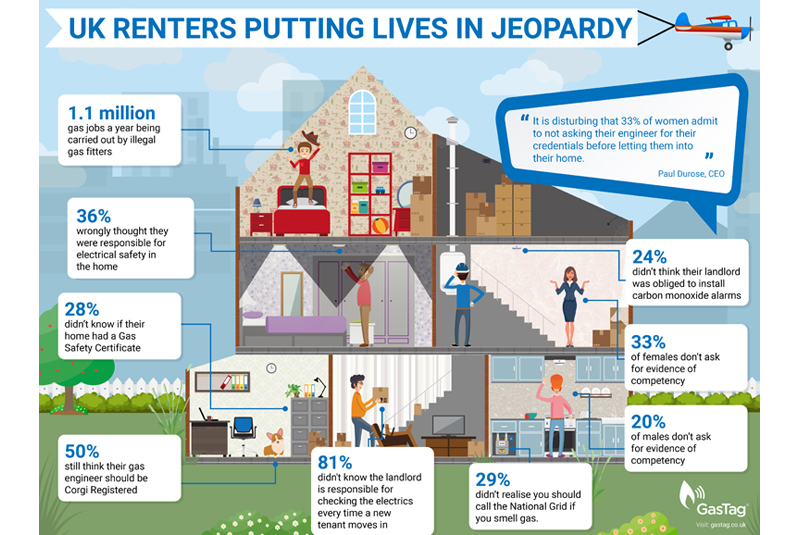
Research commissioned by Gas Tag has revealed a third of women allow gas engineers into the home without asking for credentials.
The research uncovered that 33% of females did not ask for evidence of competence, compared to 20% of men.
The findings came in a survey of renters and highlighted a lack of basic safety knowledge as well as a lack of understanding surrounding landlord responsibilities.
The survey also revealed:
- 50% still think their gas engineer should be CORGI registered
- 28% either didn’t have or did not know if their rented home had a Gas Safety Certificate
- Almost a quarter (24%) did not think their landlord was obliged to install a carbon monoxide (CO) alarm if there was a solid fuel burning source like wood or coal
- 81% did not know a landlord is responsible for checking all electrical appliances every time a new tenant moves into a property
- 36% wrongly thought they were – rather than the landlord was – responsible for electrical safety in the rented home
- Almost a third (29%) did not realise you should call the National Grid helpline if they smell gas in or around the home.
Paul Durose, CEO of Gas Tag, which commissioned the survey, said: “It is disturbing that 33% of women admit to not asking their engineer for their credentials before letting them into their home. This is despite 1.1million gas jobs a year being carried out by illegal gas fitters who are not qualified.
“Tradesmen should insist that you check their credentials but, if they don’t, then the onus is on householders to not fall into the trap of either being too scared to ask or too trusting to check.”
Paul added: “Even when people do ask, half of those questioned still think their gas engineer needs to be Corgi approved when it actually changed over to Gas Safe Register in 2009. There is also huge confusion and lack of understanding about the responsibilities of landlords renting out properties. The overall conclusion is that large sections of the UK’s rented population are putting their lives at serious risk.”












